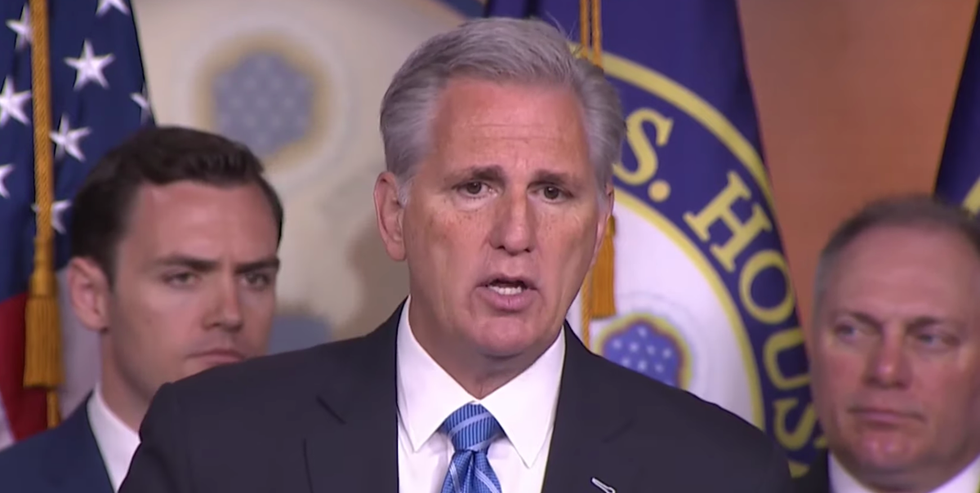Republicans remain in denial about the scope of the crisis — and it could cost us


House Speaker Nancy Pelosi has been vocal about the fact that the coronavirus response bill Congress just passed, along with previous actions, will not be sufficient and will not be the last. Republicans, however, are remaining in denial.
"We have now just passed what would be the third bill. Let's let this work. Let's let this work inside America," House Minority Leader Kevin McCarthy said on Fox News Thursday, before the bill actually had passed. "We have now given the resources to make and solve this problem. We don't need to be crafting another bill right now. Let's let these $2 trillion go to work for us, plus the $8 billion ahead of time and the billions of dollars we just passed on the second bill." I suggest that McCarthy try telling that to his state—to all the states—facing an immediate and massive crisis. States and local governments aren't like the federal government: most can't run deficits, and are legally required to balance their budgets. This crisis will require massive spending and will curtail revenues, and is becoming increasingly real to governors.
The just-passed bill does give $150 billion to state and local governments to help. That's about $3.8 billion for New York, Gov. Mario Cuomo said earlier in the week when he called out the bill for its deficiency in helping states. He says the state is looking at a budget shortfall from this disaster of as much as $15 billion, estimating that it's probably already cost the state $1 billion.
Looking at the last economic disaster, the Great Recession, the Center on Budget and Policy Priorities estimated a cumulative $600 billion budget gap for all the states over a five-year period. The disruption from this crisis could be even greater, as it's a double whammy of a public health and economic emergency. According to Moody's Analytics, only half of the states have enough "rainy day" funding to weather even a moderate recession. The states that rely in large part on sales taxes are going to see massive hits with retail essentially shut down.
Unemployment claims topped 3 million last week. Not only is that dramatically curtailing state and local governments’ tax bases, it's costing them because they're in charge of running the UI benefit system, and some of them have pretty creaky systems that will be overloaded by the deluge. Then there are the 14 states that have refused to take Medicaid expansion. That decision can now be deemed a massive failure, Scott Pattison, former executive director of both the National Governors Association and the National Association of State Budget Officers, told the Washington Post. "The fastest, most efficient way to get money out to the states is through Medicaid, because there's a whole mechanism already that allows for that all in place." When the economic crisis is caused by a public health crisis, that's doubly true.
So far, Republicans are really not getting that. Senate Majority Leader Mitch McConnell told Politico earlier in the week that "The real problem here is it's on the health side and we’re all hoping that we’re going to begin to bend the curve here in the next few weeks. So I don't have an announcement to make about the future yet," not grasping that the future is here. "We're hoping and praying that we're going to begin to get a handle on this pandemic." That's not going to happen without a lot more spending.